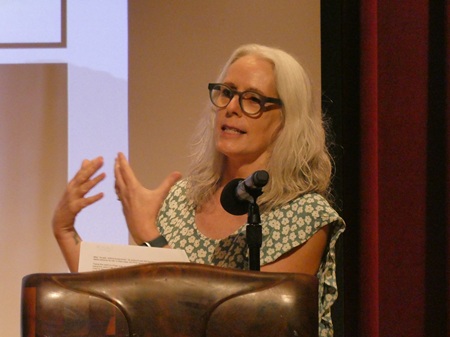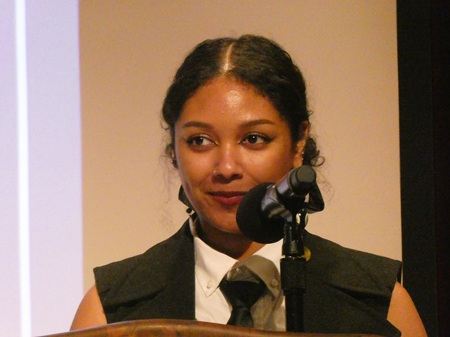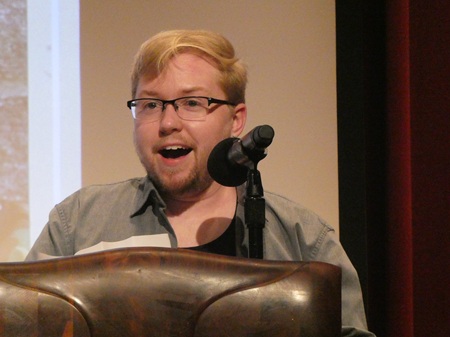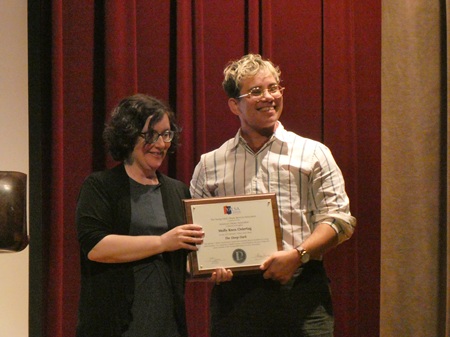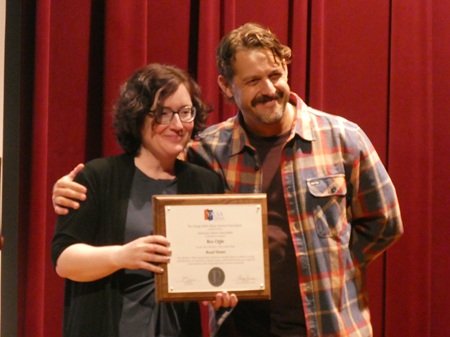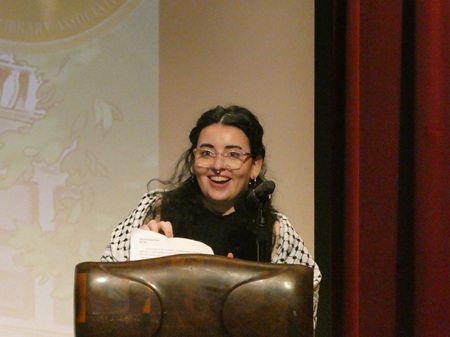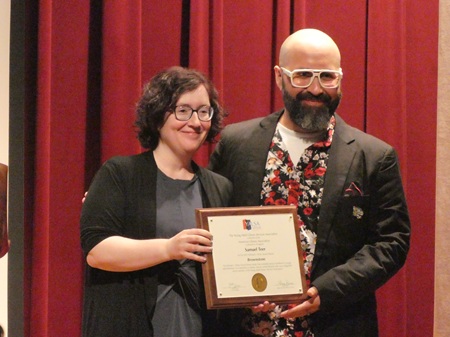The first day of ALA Annual Conference is also the night the Printz Awards are given. What I like about the Printz Awards is that *all* the authors give speeches, not just the winners, unlike the Newbery. They also consider the art, not just the text, unlike the Newbery. So attending the awards is a way to start off Annual Conference with inspirational speeches, happy to be a librarian. I’ll give notes from their speeches below.
This year marked the 25th anniversary of the Printz Awards, so Laurie Halse Anderson, who won an Honor that first year with Speak, delivered a keynote address.
We serve a vision of how the world ought to be. Not only do we write for teens, but we have a responsibility to them.
If you’re not pissing off haters, you need to try harder.
The Printz is part of a recognition of adolescence itself. Adults often try really hard not to remember being a teenager. Adolescence is so powerful. Teenagers might be the original woke people, the opposite of anesthetized.
Young people always lead change. 25 years ago the Printz honored books that are still freaking people out today.
The first Honor recipient to speak was Safia Elhillo for Bright Red Fruit.
Despite the best efforts of our enemies, libraries will continue to thrive.
There is nothing meager about being a poet.
Today is Day 804 of the war in Sudan, “the forgotten war.” Her family used her grandfather’s bookshelves to stop bullets after the windows were shattered.
Books give hope of stopping bullets.
The next Honoree was Andrew Joseph White for Compound Fracture.
This book reached teen readers at the right time. About people fighting for good in a place written off.
It’s about family history and queer history, based on his own family.
Queer people are here and we exist. It’s also a scary time to be queer.
Then we heard from Molly Knox Ostertag, author of the Honor book The Deep Dark.
She doesn’t write queer characters because she’s looking for representation. These are people you love.
Transition is a declaration of hope. The roles are not fixed.
Good books show you the world is bigger than yourself.
An expansion of freedom, a celebration of choice. There’s no one else I’d want to be fighting the good fight with.
Next, Rex Ogle received an Honor for The Road Home.
He began by talking about ice – frozen water. Ice is human ingenuity at its core.
When you’re homeless, you’re invisible to the people around you. 2.8 million kids are homeless right now, and 40% of them are LGBTQ.
Life is painful. We make a difference, but it comes at a cost.
He is still working so hard just to be seen, and this award shows that librarians see him.
He used to wish on dandelions that he’d be a writer. His pain got him here. Times are dark, but where there’s conflict, there’s growth.
Abuela gave him a drink with ice after he’d gone a summer without it.
Don’t focus on the hurt. Focus on the beauty of ice. You survived today.
Now it was time for the winners to speak, the author and illustrator of Brownstone. Mar Julia spoke first.
This is an important book today. Get involved in your community! Especially right now. Know your neighbors. Check on someone you haven’t seen in a while.
Community is difficult at times, but it’s deeply rewarding.
Then Samuel Teer spoke, also for Brownstone.
He began with a story – about an adorable Latino boy growing up in the Midwest. He was too much and didn’t have friends until he got into comics, then made two friends. His bus driver gave him a coverless comic preview because her husband worked for DC Comics. That was when he realized that comics could be a job and he decided to make comic books. That’s his origin story.
But things were tough after that. He worked on Brownstone for a year – figured it was his last shot. He kept asking, Is this worth it? (Comics are always worth it.)
Making comics is what he always wanted to do, and Brownstone gave him a second chance at that.
And the Printz means Brownstone is actually getting read. And he gets to work! And make comics! He gets to make little Sammy’s dreams become reality.
